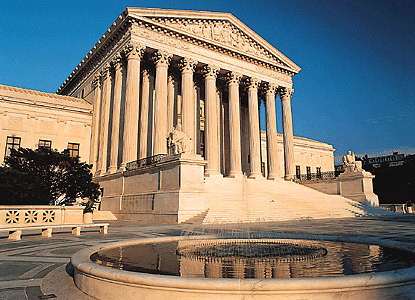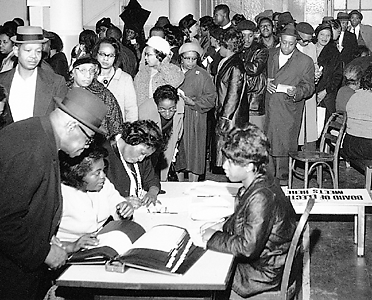High Court Strikes Down Voter ID Laws
Monday, June 17th, 2013June 17, 2013
The Supreme Court of the United States, in a 7-to-2 decision, today struck down an Arizona law that required would-be voters to provide documentary proof of citizenship, generally in the form of a birth certificate, U.S. passport, or driver’s license. Writing for the majority, Justice Antonin Scalia, noted that a federal law “precludes Arizona from requiring a federal form applicant to submit information beyond that required by the form itself.” The law he referred to, the National Voter Registration Act of 1993, allows people to register to vote using a form that asks, “Are you a citizen of the United States?” Prospective voters simply check a box for yes or no. By signing the form, the voter is swearing under the penalty of perjury that he or she is a citizen.
Voting rights advocates claim that state legislators passed laws requiring voters to show identification to discourage minorities from voting. They compared the laws to the Jim Crow laws passed by Southern states in the 1890′s to keep African Americans from voting. In recent years, four states besides Arizona–Alabama, Georgia, Kansas and Tennessee–have instituted voter ID laws; 12 other states have similar legislation pending.

At the Supreme Court Building in Washington, D.C., justices of the high court meet to interpret the laws that govern the nation. (© Joe Sohm, Photo Researchers)
“Today’s decision sends a strong message that states cannot block their citizens from registering to vote by superimposing burdensome paperwork requirements on top of federal law,” stated Nina Perales in response to the court’s decision. Perales is the vice president of litigation for the Mexican American Legal Defense and Educational Fund.
Justices Clarence Thomas and Samuel Alito dissented from the court’s ruling. In the dissent, Justice Thomas wrote that the U.S. Constitution “authorizes states to determine the qualifications of voters in federal elections, which necessarily includes the related power to determine whether those qualifications are satisfied.”
Additional World Book articles:
- Grandfather clause
- Poll tax
- Courts 2012 (a Back in Time article)
- Tempest in a Tea Party (a special report)



